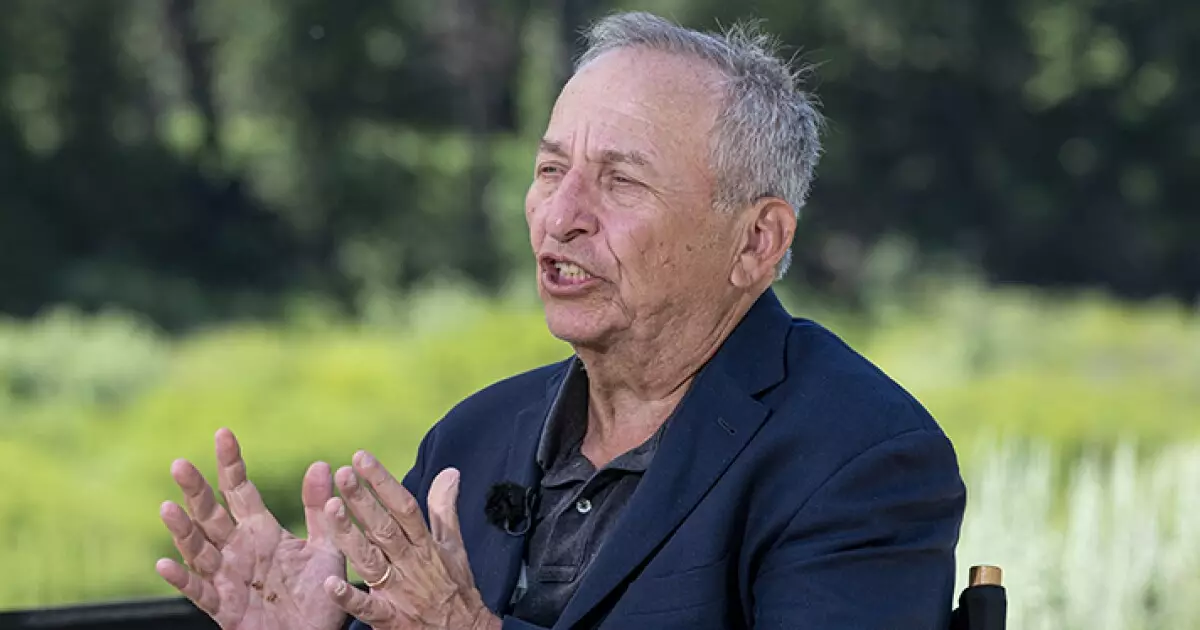The interplay between a sitting president and the Federal Reserve is nothing short of captivating, particularly under Donald Trump’s administration. When former Treasury Secretary Lawrence Summers spoke on Bloomberg Television about the anticipated Fed chair nomination, his confidence drew attention. Summers predicted that Trump would select a candidate deemed respectable by mainstream observers, despite the president’s harsh critique of Jerome Powell—the current Federal Reserve chair. This statement begs the question: how much influence does a president really have on the central bank, and to what extent is that influence a calculated maneuver in the political game?
Summers’ assertion comes with several layers of complexity. While market reactions to the Fed chairman selection are certainly vital, a deeper analysis reveals that Trump’s interest in low interest rates echoes more than just a desire for economic prosperity. It reflects a broader strategy aimed at navigating the treacherous waters of his administration’s economic record. As markets display sensitive reactions to Fed policies, one must wonder whether this pattern signals genuine interest in economic health or merely a preemptive shield against potential backlash should gloomy economic forecasts materialize.
Who Will Replace Powell? The Candidates and Wild Cards
Trump’s upcoming decision to replace Powell highlights a broader issue: who exactly fits the bill for a sensible Fed chair? Names like Scott Bessent and Kevin Warsh are floated among insiders, each with their qualifications and connections. While Bessent represents continuity and familiarity, Warsh embodies a more proactive approach to monetary policy. Ultimately, whoever the president chooses must operate within a framework that balances expectations from various stakeholders, including skeptical lawmakers and financial markets ready for anything less than a steady hand.
More than the individuals themselves, the broader perception of the nominee is essential. In this politically charged environment, a figure who can withstand scrutiny from both parties, yet still champion policies that may not align neatly with traditional GOP ideology, may be the answer. Trump’s leaning towards a “mainstream” candidate signals a desire for stability, but can stability exist in such a polarized political landscape? It seems the answer is complicated and fraught with implications for both fiscal growth and political legacy.
Political Theater: Blame Games and Tariffs
However, Trump’s rhetoric surrounding interest rates seems more spotlight-ready than policy-driven. His recent comments about appointing himself to the Fed, ostensibly in jest, raise eyebrows regarding the seriousness of his understanding of monetary policy. While it could be dismissed as flippant banter, it points towards a troubling tendency in political discourse—a disregard for the institutional integrity of the Fed.
Summers perceptively opines that Trump’s campaign for lower interest rates serves as an attempt to deflect blame should an economic downturn occur. By positioning the Federal Reserve as the scapegoat, he sidesteps accountability for his administration’s policies. This combination of deflection and theatrics sets the stage for a more volatile relationship between the White House and the central bank. As Summers states, the Fed has recently revised its economic forecasts to a less optimistic outlook, and the tariffs levied during Trump’s administration are likely to play a crucial role in this negative supply shock.
Economic Forecasts and Impending Challenges
The nuances of monetary policy and their implications become increasingly relevant as we evaluate data from Fed board members. The juxtaposition of rising inflation against the backdrop of a corporate world grappling with tariff challenges provides fertile ground for controversy. While some markets celebrate decreasing energy costs and potential efficiency gains from artificial intelligence, others grapple with stagnation driven by unfavorable international trade dynamics.
What Summers suggests is not merely a question of interest rates; it’s a significant comprehensive evaluation of how economic policies influence broader structures. The suggestion that we might see rising inflation and unemployment simultaneously raises alarms about the sustainability of the current approach. In contemplating the future of monetary policy, can we disentangle the interwoven threads of fiscal strategy from political ambitions?
The political theater surrounding Trump’s impending choice for Fed chair not only influences economic trajectories but also highlights the fragile balance of power between the White House and an independent central bank. As we await the nomination, the ramifications of this decision extend far beyond mere interest rates—they may ultimately redefine the landscape of American economic policy.


Leave a Reply